Tips to be a More Conscientious Traveler
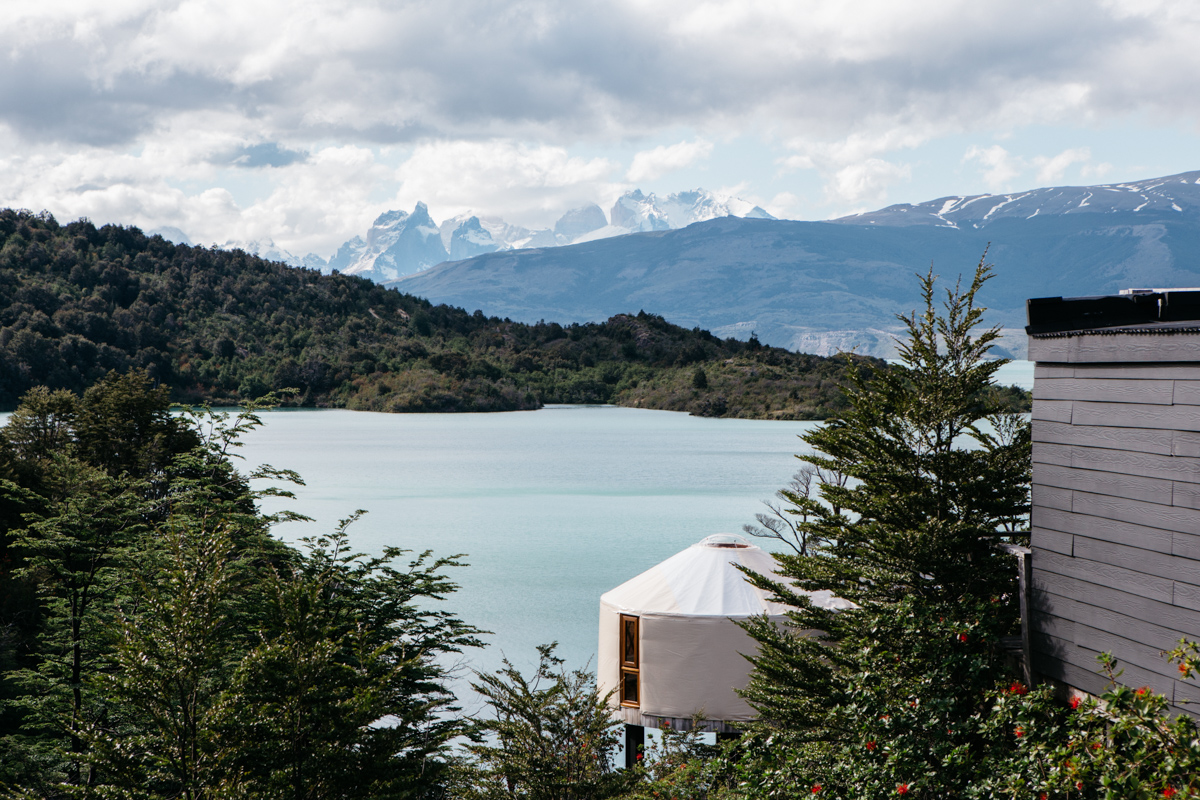
Tips to Be a More Conscientious Traveler
In Torres del Paine & All Over
By Gale Straub
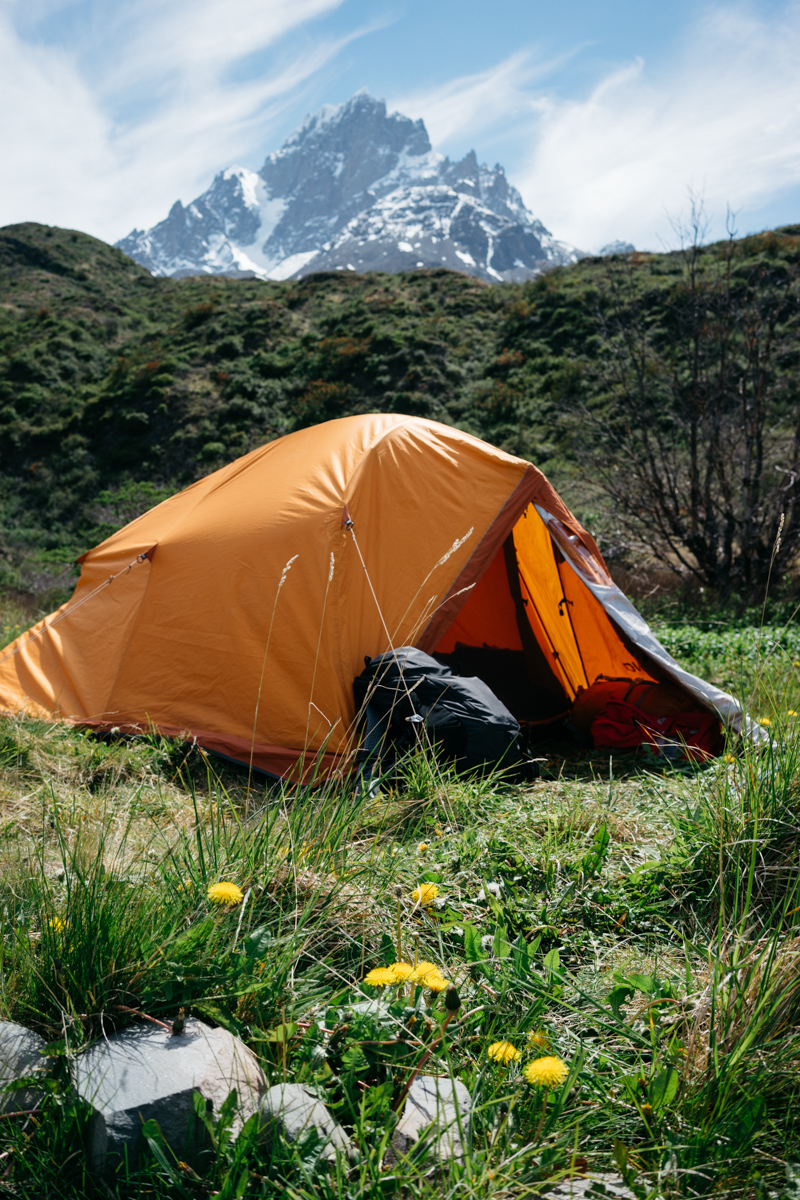
There’s no arguing that international travel can be great for you. It opens you up to new vistas, tastes, and cultures. It pushes you to navigate across languages and and takes you far outside of your comfort zone. But is your travel great for the earth? Not really. Just getting to Torres del Paine in southern Chile is thousands of miles of flying, driving, and boating: that’s a lot of carbon dioxide.
But once you arrive, there’s a lot you can do to be a more conscientious, sustainable traveler – whether you’re looking at that through a socio-economic, cultural, or environmental lens. I haven’t done a whole lot of international travel, but I recently traveled to Torres del Paine National Park where I interviewed Emily Green, the director of the Torres del Paine Legacy Fund. The advice that follows is a result of both our conversation and takeaways from my own experience.
Tips to Be a More Conscientious Traveler:
- Mirror Your Best At-Home Behavior: Start with what you know. Sure, you’re really far from home and everything feels different (and that was the point!), but if you regularly sought out recycling, bicycled, and shopped at farmer’s markets where you came from, it’s worth doing some research to find out what’s feasible to mimic. As an added bonus, it might give you a little idea what it would be like to live there, which is always fun to imagine.
- Pack Out Your Trash if You Can’t Find Recycling: Unfortunately, recycling isn’t ubiquitously found in Torres Del Paine (yet). While you’re expected to pack out your trash and follow Leave No Trace principles wherever you recreate, if you can’t find recycling at the closest refugio or bathroom hold onto it until you return to Puerto Natales. A relatively new addition to town, recycling is helping to manage the excessive waste due to increased tourism.
- Speaking of recycling, Leave No Trace: All the same rules apply in foreign wilderness and recreation areas. In addition, it’s important to be respectful of any additional rules set by the local government. For example, CONAF is Chile’s National Forest Corporation and they have very specific park rules for Torres del Paine, including a very strict no open fire policy.
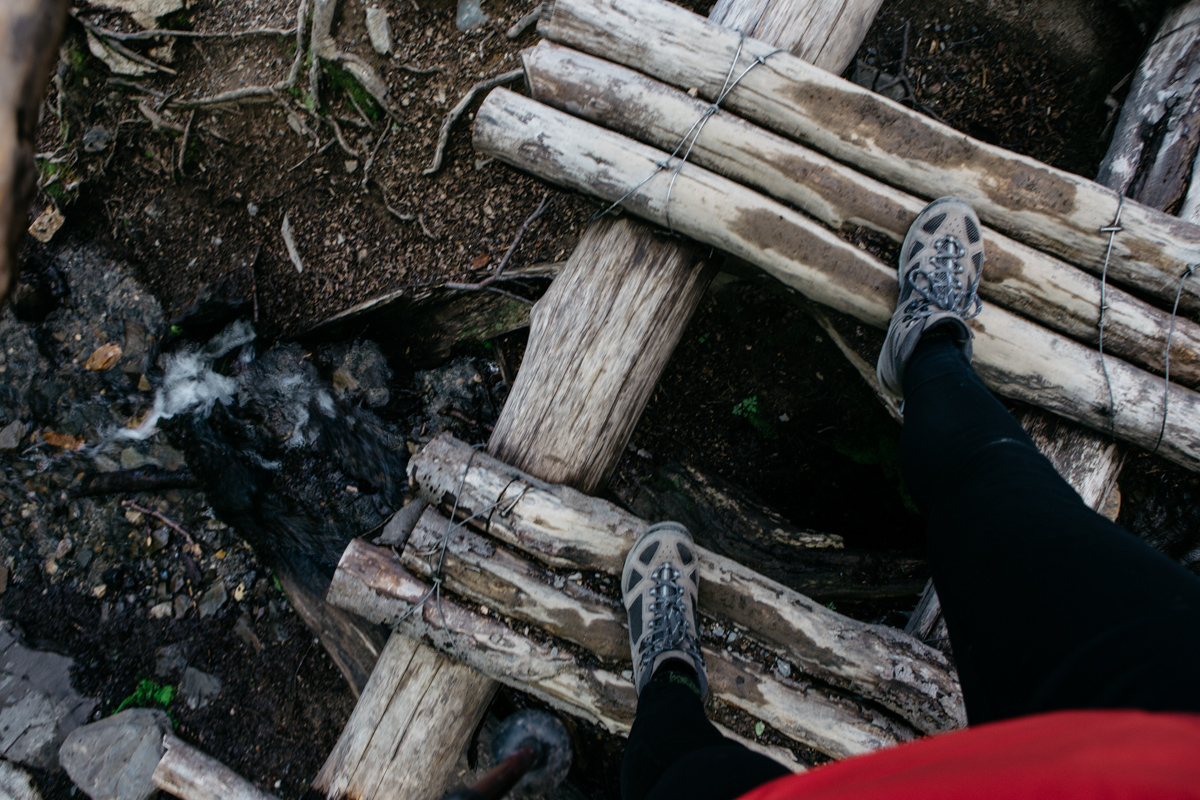
Stick to the trail
- Get to Know the Gateway Town: Sure, Puerto Natales is a conduit to the park, but odds are you’ll spend a night or two there during your visit. With ~250,000 annual visitors to Torres del Paine and an infrastructure built for ~19,000 residents, Puerto Natales’ capacity is strained during the high season. Your tourism pesos contribute heavily to the local economy, but they also impact the culture. Don’t just pass through, learn about the history and gain an appreciation for the people and the place.
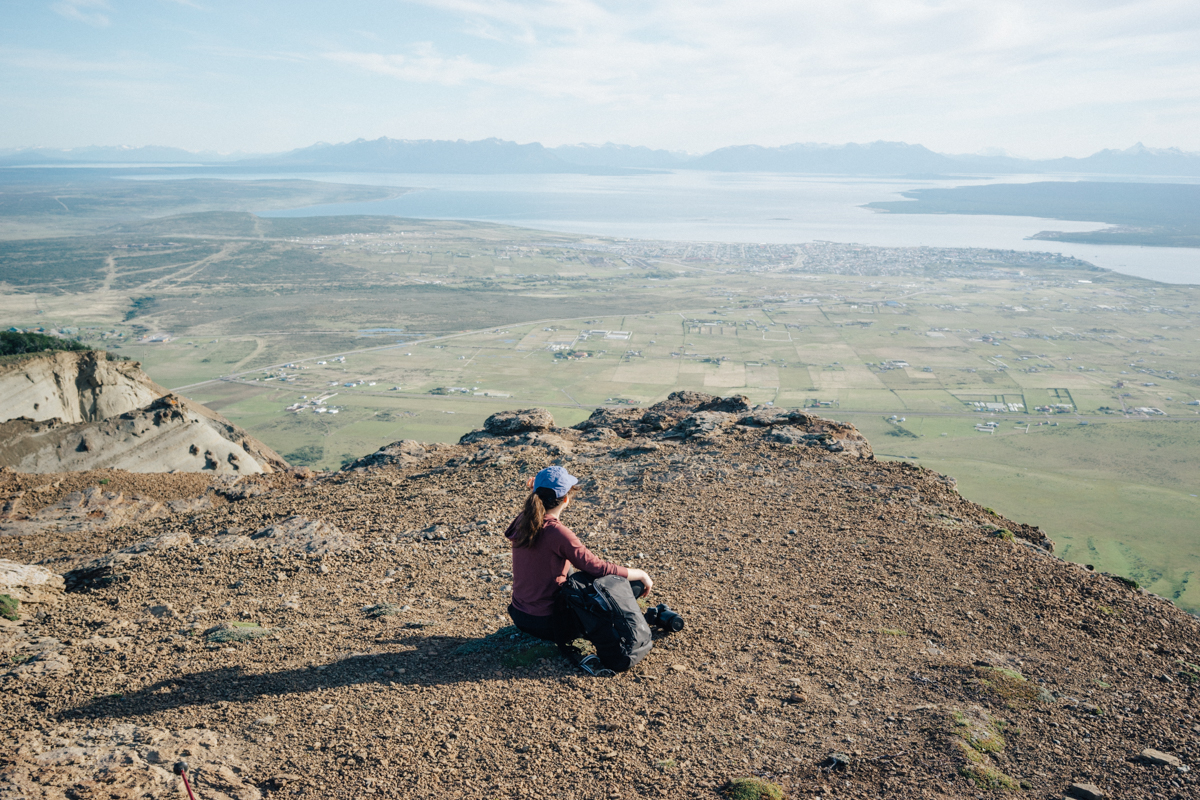
Overlooking Puerto Natales
- Research Your Accommodations: If you aren’t camping (or you are treating yourself to a few nights sans tent), look into both the sustainability practices of your hotel choices and whether they support local initiatives. In and near Torres del Paine, I had the opportunity to stay at both Patagonia Camp and EcoCamp, which were both founded on sustainable principles and partner with the Legacy Fund. Here are some of the unique ways they manage their footprint:
- Patagonia Camp has a 100% organic water treatment plant on premises. It mimics the way the earth filters water so that the lake it overlooks stays as pristine as possible. They also compost their organic waste. Learn more about Patagonia Camp here.
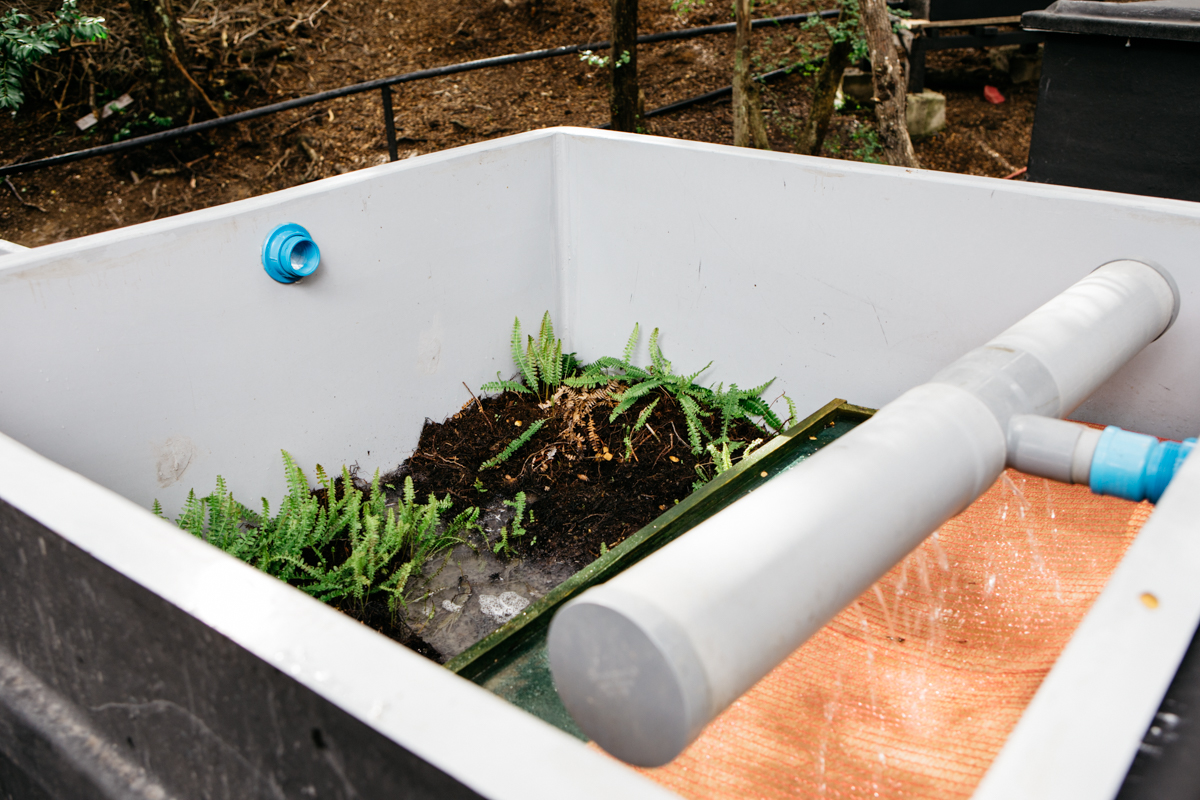
100% organic water treatment plant
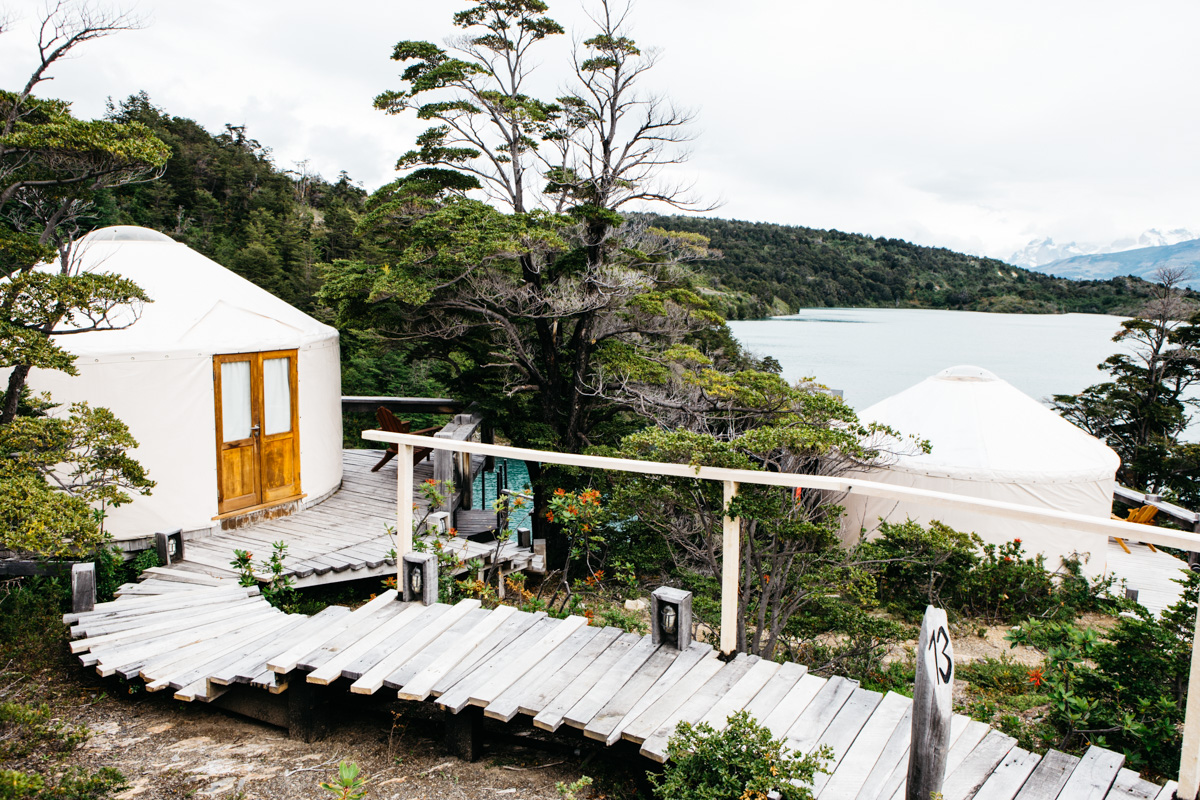
Rooms at Patagonia Camp
- EcoCamp is located right next to Torres Central. It’s the region’s first fully sustainable accommodations: it’s completely powered by hydro and solar energy, and the geodesic dome rooms are designed to be as efficient as possible. It’s been carbon neutral since 2008! Learn more about EcoCamp’s green practices here.
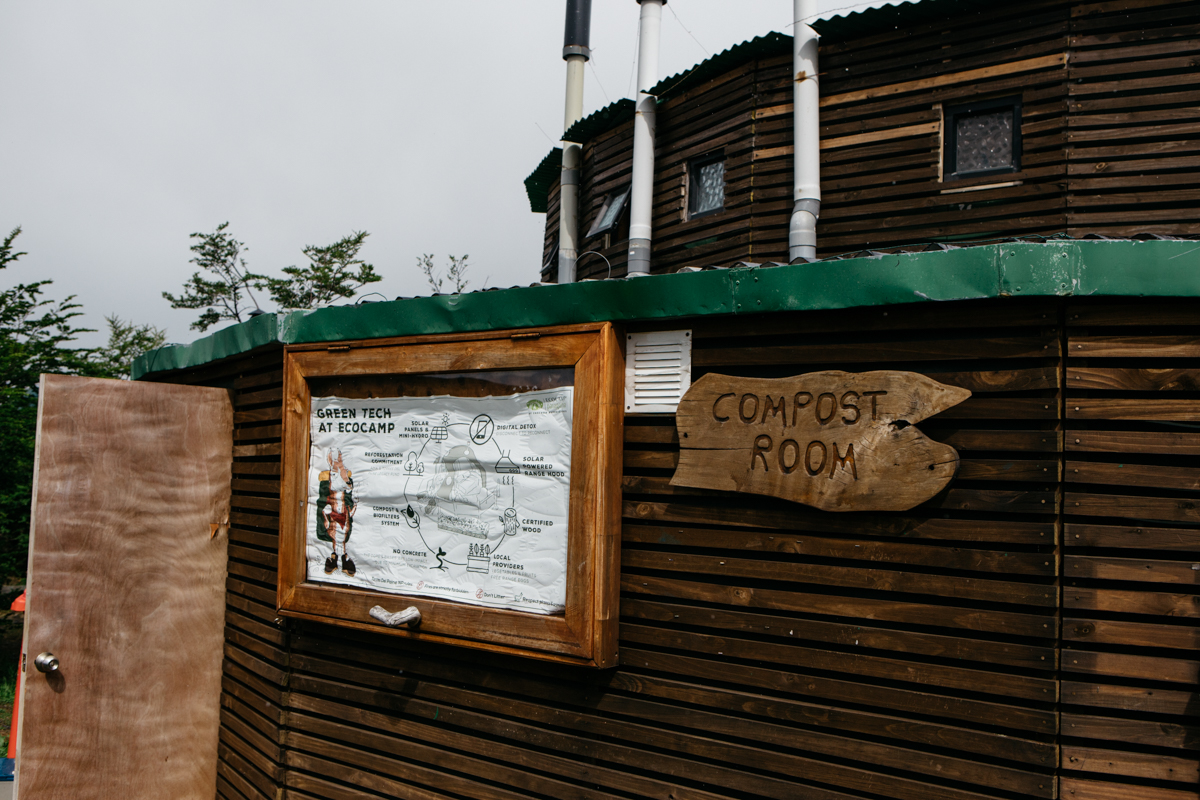
Compost room at EcoCamp
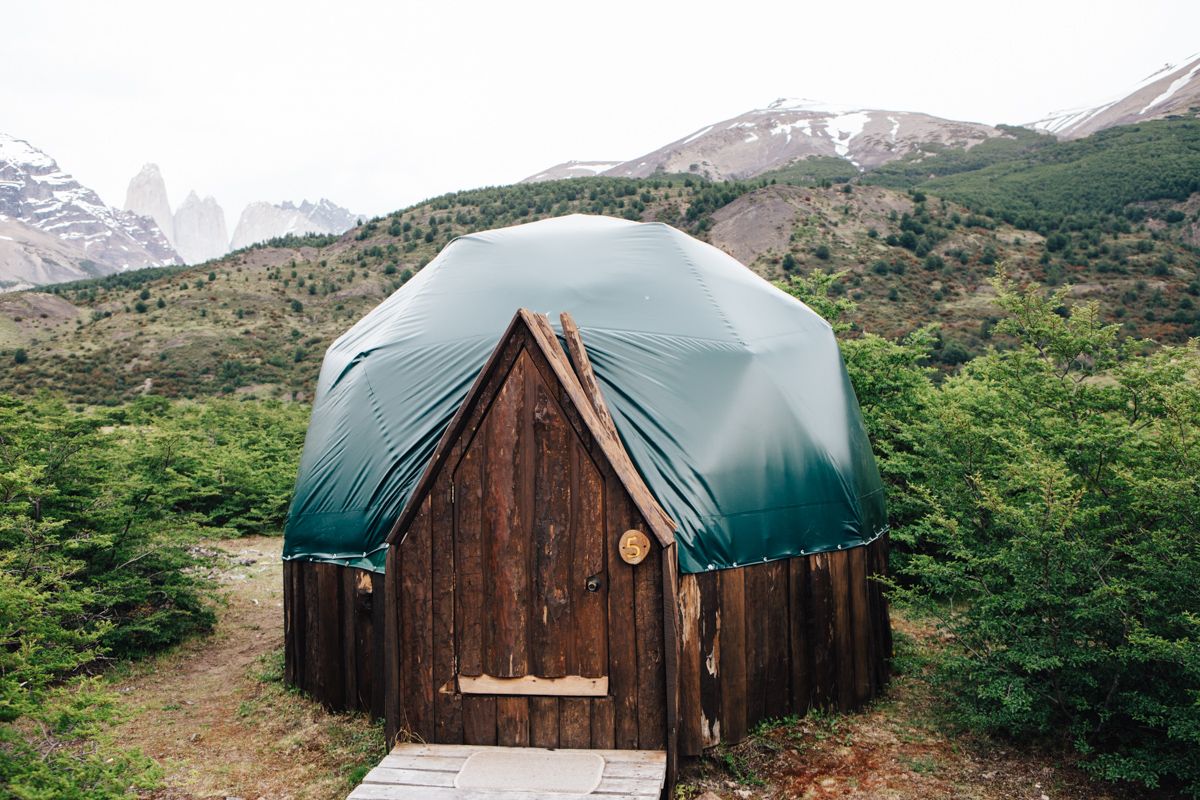
Energy efficient standard dome at EcoCamp
- Patagonia Camp has a 100% organic water treatment plant on premises. It mimics the way the earth filters water so that the lake it overlooks stays as pristine as possible. They also compost their organic waste. Learn more about Patagonia Camp here.
- Research the local Non-Governmental Organizations: If you research local nonprofits supporting the community and landscape, it’ll have a cumulative effect. You’ll know the type of work they do, and what’s needed in the area. You’ll be able to recognize them by name and identify whether vendors you’re using give back to their community. It’s a way for your money (which you’d be spending anyway) to go further! You might be compelled to donate a little extra, too. If you have extra coins at the end of your vacation, consider leaving them in their home country.
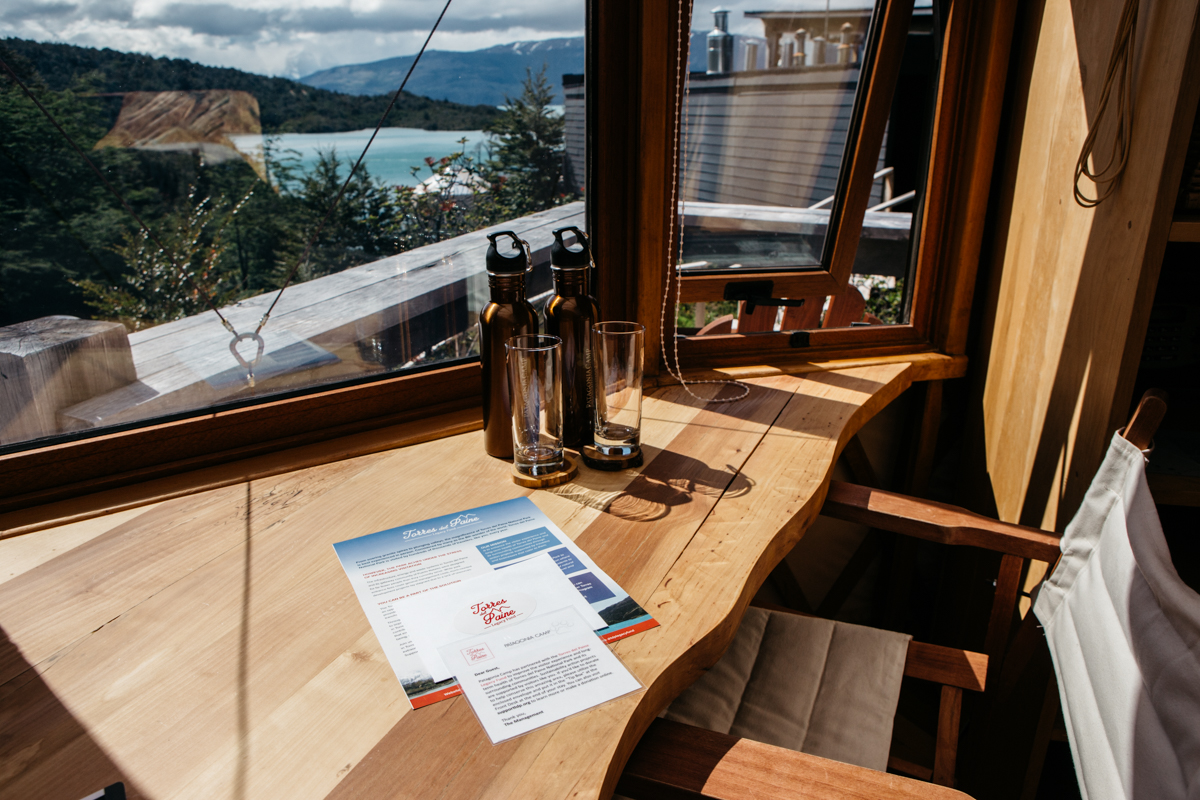
Torres del Paine Legacy Fund handout at Patagonia Camp
You can learn more about sustainable travel at Sustainable Travel International’s website ->
Note: As supporters of the Torres del Paine Legacy Fund, Patagonia Camp and EcoCamp offered She Explores free room and board for a portion of our stay at Torres del Paine. That said, our opinions are all our own. We’re happy that businesses in the area want to encourage sustainability of this beautiful place.
It seems that a lot of these businesses are well out of bounds for all but the most well-heeled tourist. What about volunteering for room and board at a local house, or better yet an environmental NGO? If she-explores is serious about inclusivity in the outdoors, here would be a perfect place to discuss how those with less funds can travel internationally. International travel does help someone become a more educated, thoughtful world citizen, it’s not just a bigger carbon footprint.
All good points Zachary, as noted those are two hotels that support the Torres Del Paine Legacy fund that does an incredible amount of work for the park and the gateway city, Puerto Natales. Completely agree that camping is the most sustainable option and that there is a lot more that could be said about ways to see the park for those with less funds. In fact, we also did an episode about volunteers through the legacy fund who took on the opportunity so they could see and give back to the park. Thanks for providing your perspective!
This is so important – it’s been hard for me to come to terms with my love for travel and how unsustainable it can be. I love these tips, and I think it’s important for all travelers to consider the impact they’re having on the places they visit.